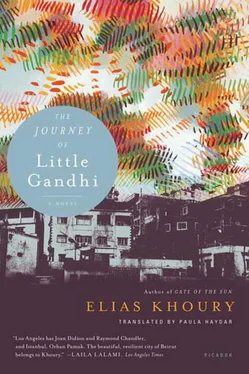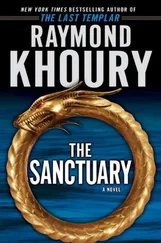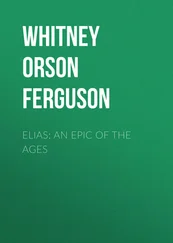The first time Ralph used hairspray on Madame Nuha Aoun’s hair he felt as though he were flying. As the spray streamed over her hair Ralph fluttered around her like a butterfly. Master Ahmad was quite pleased with this new assistant, for most of the professional ones had left. Joséf, the original owner, left, gave the keys to Ahmad, and just took off.
“That Joséf was something else,” Madame Nuha would say. Joséf was great; it was impossible to get an appointment with him. But now after he left for some unknown place, along with all the rest of Lebanon’s rising stars, it wasn’t much fun anymore to go to the hairdresser.
Actually, Joséf was a woman, prettier than a woman. That’s how all the women who came to his salon felt about him. He was known for his intimacy and elegance. He talked like women, with a penchant for detail, and laughed out loud like women. He had long tapering fingers, a long white face tinged with red, a long delicate nose, long eyelashes, thin eyebrows, and a soft voice that crackled with laughter whether or not there was reason to laugh. Joséf took off. He left Beirut, said he was going to Rome, and never came back. Master Ahmad, his first assistant, who took over managing the salon, said he was living in Jounieh.
“He left the business and went into buying and selling land.”
The last day he was in West Beirut he was scared to death. He embraced Ahmad and said to him, “My sweetheart, the place is yours. Take care of things; I’ll be back.” Ahmad tried to persuade him to stay and told him he’d ransom him with his own eyes. But Joséf was even scared of Ahmad.
“I’m afraid of you, darling. Maybe you’ll kill me; how do I know?”
“How could you say that? You taught me everything I know.”
“This is true, but I’m leaving.”
Joséf embraced Ahmad and started to cry. He walked away and never came back.
Ahmad had never thought about killing his teacher Joséf. It was true that after it became commonplace for shops to be bombed, he told his wife he was afraid and was thinking about taking down the sign from in front of the salon. Then he cursed Joséf and all Christians, and said that the salon was his, that he’d been working in it for thirty years and barely made enough to feed his family. But deep down he never thought about killing Joséf or taking over his shop. Joséf had taught him all he knew about the trade, and through him he met the most beautiful women in the world. From Sabah to Farah Diba to Afghani princesses. He lived like a king with him.
“Joséf was a king,” Ahmad told Ralph. “He dished out money and the money kept on coming. But kings always end up being the butt of jokes in the end. I didn’t let that happen to him. May God protect him.”
Ralph knew that Madame Nuha would never love him the way she loved Joséf. Ahmad told him all about how she was a different woman under Joséf’s hands. She didn’t read magazines like the others; she surrendered herself like a chicken. She appeared to be sighing or as if she were about to choke, and she’d come out looking as beautiful as the moon, her smile overtaking half of her face, and Josef hovering around her like some kind of god.
“Those were the days, not like now. Now we style hair as if it were work. In those days it was an art, and women were real women.”
Madame Nuha didn’t pay any special attention to Ralph. Joséf’s story with her and the way she moaned excited him and made him feel out of breath. When he’d see her coming in and imagined Joséf dancing around her hair, his breathing would become short and choppy. Then he’d forget, until she’d start. She was the one who started it all.
“You started it,” he told her.
She laughed, lying there naked on her wide bed. She laughed and didn’t respond.
“You make me laugh, boy. Come here.”
He’d come and make passionate love to her. She’d take him in, into her insides. Ralph would shake violently inside this white woman. She had a blinding whiteness about her. Ralph would always ask her to turn off the light, but she always left it on.
“I like to see your face, how handsome it becomes. I like to see you.”
It all began. Madame Nuha sank down with her hair under the water while Husn was pouring on the applescented shampoo and delving his fingers into her long blond hair. Her head rose up for a moment and she looked at him but didn’t say anything. Then she lowered her head back down.
“The water,” she said. “The water.”
“Would you like me to make it cooler?”
“No, no. The water’s really nice.”
She shook her head a little and then slumped down into the chair and Ralph finished his work. After having her hair dried Madame Nuha moved over to sit under Ahmad’s fingers. Ralph couldn’t keep his eyes off of her. He smudged Madame Ismail’s forehead with black hair color while he was dying it for her. Madame Ismail screamed and so Master Ahmad ran over and cleaned her forehead with cotton and cigarette ashes mixed with water. Ralph paid no attention. He stood behind Madame Ismail’s chair exchanging glances with Madame Nuha, who wasn’t paying any attention to him.
Two days later he bumped into her on the street.
Ralph was on his way out of work from the salon and she was walking slowly down the street. He said hello to her and walked beside her and then they went to her house. Nuha Aoun lived alone in an old house with high ceilings and a garden grown over with grass. The smell of wool seeped from the walls. Her only daughter was living in the States and would write to her telling her to leave Beirut and come live with her. Her husband, Mr. Najib Aoun, was a fabric merchant in the Souq Tawila. He died in 1976 of a heart attack, leaving her with a lot of money, a daughter, and some demolished shops in the business district of Beirut. Her daughter would write telling her mother to come to California, and her mother would answer saying she couldn’t leave Beirut. Her only friend was a French woman who was married to a Lebanese from the Shaheen family, and who worked in the French Cultural Center in Beirut. The husband had been kidnapped at the beginning of the war and the French woman kept moving between East and West Beirut waiting for her husband’s release. Then she left the country. Arlette lost hope and left, and Madame Nuha was left all alone. Madame Nuha knew all the neighbors in the quarter, but she felt incapable of adjusting to the new situation. She acted as if she were waiting for some unknown thing to happen. She wrote to her daughter saying she was waiting, that Beirut was a storehouse of memories, but she didn’t tell her the truth, and her daughter, who was living with her husband and two sons in San Francisco, couldn’t understand her mother. She wrote to her saying she didn’t understand, and that she’d given up on her.
Ralph didn’t understand either.
She told him she was waiting for something, and that she would go. “What about me?” he asked her.
She almost died laughing. “You, sweetheart,” she said, dragging out her words sarcastically.
“You, my son, see what the future holds for you. What do you want with me? I’m old enough to be your mother.”
He hugged her close to him and smiled. He smiled like someone who pretends he understands but really doesn’t.
Ralph was incapable of thought. This woman had taken him to the unknown. He slept with her every day, and felt as though she were drinking him and slurping him up. He’d go to her at eight o’clock at night, and they’d have dinner and then go to bed. The relationship was pure madness. She was a crazy woman. Her screams and moans engulfed Ralph’s body and senses while he was around her and under her and on top of her as if he were lost.
“I can forget everything,” he said to Rima after the story of Madame Nuha was over. He told her he could forget everything, but he didn’t forget that one night. The rain poured over the windows, and Madame Nuha was waiting for him. He said he didn’t know what happened to him, but he was like a child in her hands. She was the one who would take him and scream as he made love to her, but things would get away from him. She was everything, and he didn’t remember, she would rise and fall and pull him back and forth and move away.
Читать дальше












